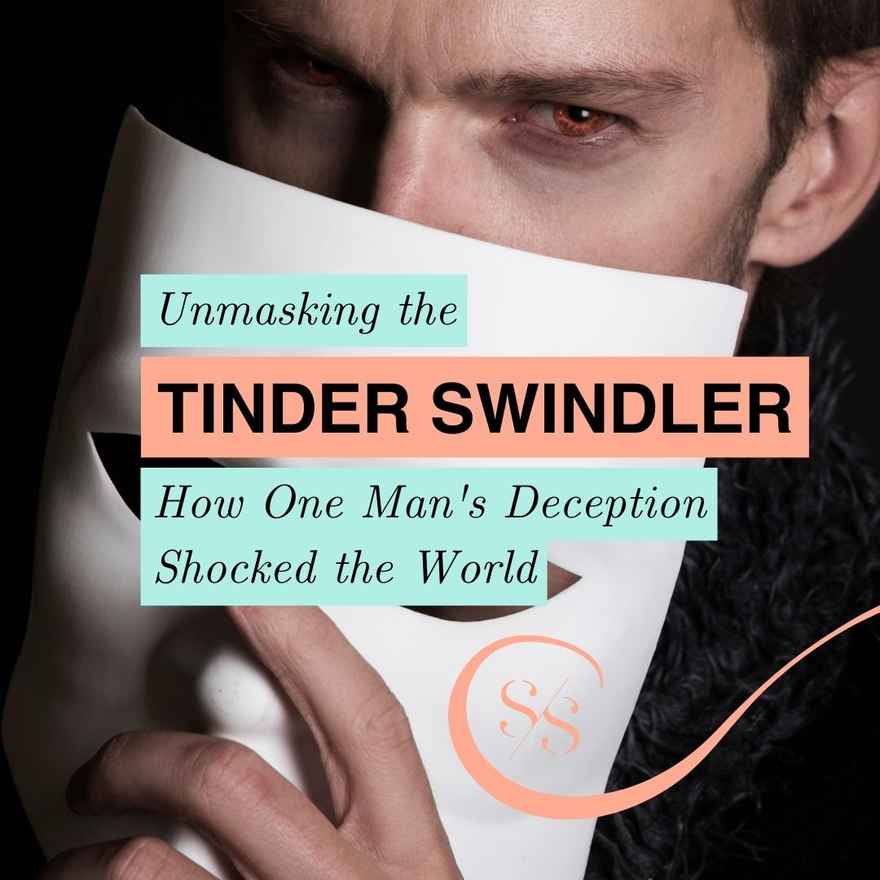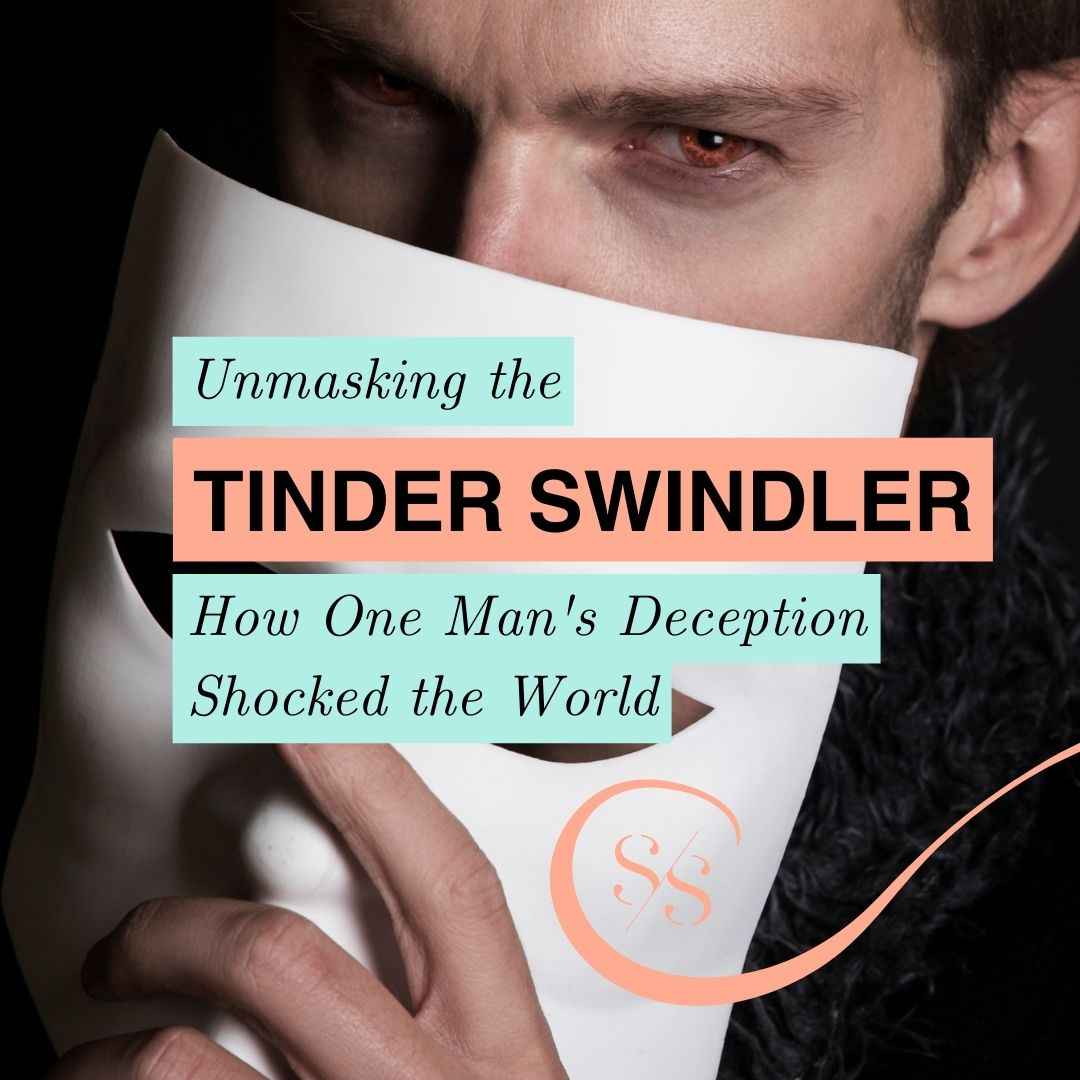Unmasking the Tinder Swindler: How One Man's Deception Shocked the World

Unmasking the Tinder Swindler: How One Man's Deception Shocked the World
In the vast realm of online dating, it’s important to remember that not every profile tells the truth. While many people genuinely seek connections, others mask their true intentions behind a façade of charm and wealth. One such deceitful character is Simon Leviev, born Shimon Hayut, who gained notoriety as the "Tinder Swindler." His story, as chronicled in the Netflix documentary "The Tinder Swindler," is a cautionary tale of deception, heartbreak, and financial ruin.
How the Tinder Swindler Operated
Leviev's tactics were as elaborate as they were sinister. Presenting himself as the affluent son of a diamond mogul, he crafted an image of luxury and success that was difficult to resist. Here’s how he executed his scams:
- Creating Fake Identities: Leviev meticulously built fake profiles on Tinder, portraying himself as a wealthy entrepreneur or royalty.
- Gaining Trust: Using his charm and grand promises, he swiftly won the trust of his targets.
- Financial Manipulation: Once trust was established, he fabricated urgent and high-stakes situations that required substantial financial assistance.
- Disappearing Act: After receiving the payment, Leviev would cut off contact, leaving his victims in financial and emotional turmoil.
- Cycle Repetition: With each new target, he changed personas, making it difficult for authorities to trace him.
Victim Stories
The documentary focuses on three women—Cecilie Fjellhøy, Pernilla Sjöholm, and Ayleen Charlotte—whose lives were turned upside down by Leviev's deceit. Cecilie Fjellhøy, a Norwegian woman, provides a particularly heart-wrenching account. She describes being swept off her feet by Leviev’s charm, only to be left with immense debt and emotional scars. Her tale of love turned nightmare sets the stage for understanding the profound impact of Leviev’s actions.
The Impact on Victims
Leviev’s scams left a lasting imprint on his victims:
- Financial Devastation: Many women were conned out of large sums, leading to significant debt and financial instability.
- Emotional Trauma: The betrayal resulted in severe emotional distress, leading to anxiety, depression, and loss of self-esteem.
- Disruption of Daily Life: Careers and personal relationships suffered as victims struggled to cope with the aftermath.
- Trust Issues: The experience shattered their ability to trust others, especially in forming new relationships.
- Legal and Social Challenges: Seeking justice proved arduous, compounded by social stigma and disbelief from peers.
- Long-term Recovery: Financial stability, emotional healing, and rebuilding trust is an ongoing battle for many victims.
Prevention Tips
To avoid falling prey to similar scams, consider the following tips:
- Verify Identities: Always confirm the identity of someone you meet online, particularly if they claim to be wealthy or influential.
- Be Wary of Money Requests: Be cautious of anyone who asks for money or financial help, no matter the reason.
- Trust Your Instincts: If something seems too good to be true, it probably is. Be sceptical of high-stakes stories.
- Protect Your Information: Avoid sharing personal or financial details with someone you’ve just met online.
- Conduct Research: Investigate the individual and their claims independently before committing to any financial transactions.
- Use Verified Platforms: Opt for reputable dating sites with verification features to ensure profiles are authentic.
- Communicate with Loved Ones: Discuss your online interactions with friends or family to gain an outside perspective.
- Report Suspicious Activities: Alert dating platforms and local authorities if you suspect fraudulent behaviour.
Love Said - Advocacy Efforts
Cecilie Fjellhøy has turned her painful experience into a mission for positive change. She co-founded Love Said, an organization dedicated to supporting victims of romance scams and raising awareness about financial fraud. The organization’s initiatives include:
Awareness and Education: Conducting campaigns to educate the public on recognizing and avoiding scams.
Victim Support: Offering emotional and practical assistance, including counselling and legal advice.
Advocacy for Policy Change: Working with policymakers to strengthen laws and regulations against online fraud.
Community Building: Creating a supportive network where victims can share their experiences and find solidarity
Legal Implications
Simon Leviev faced several legal actions, including:
Civil Lawsuits: Victims have filed lawsuits seeking financial restitution and compensation for emotional distress.
Criminal Complaints: Authorities have pursued criminal charges for fraud and related offences.
Potential Consequences:
- Financial restitution to victims.
- Imprisonment and fines if found guilty.
- Possible international arrest and extradition.
- Calls for a lifetime ban from dating platforms.
At the time of writing this, he is currently living as a free man in Israel.
The Growth of Romance Fraud
Romance fraud, also known as romance scams, involves a scammer creating a fake online persona to establish a romantic relationship with someone, with the ultimate goal of gaining their trust and then defrauding them of money. Here are some key statistics and insights from recent reports:
- Financial Impact: In 2023, consumers lost $1.14 billion to romance scams, with median losses per person amounting to $2,000.
- Prevalence: The Federal Trade Commission received 64,003 reports of romance scams in 2023.
- Global Losses: Romance scams and other confidence schemes caused $3.8 billion in losses globally last year.
- Demographics: Men are reportedly more likely to fall victim to romance scams, with the average claim for women being around £8.9K.
- Common Platforms: A significant portion of respondents (42%) encountered fake profiles or photos on mainstream dating platforms and social media.
These scams are a growing concern, highlighting the importance of vigilance and awareness when engaging in online relationships.
Check out these links for more information.
- Romance scams in 2024: What you need to know + online dating scam statistics
- Romance scams cost consumers $1.14 billion last year. It’s a ‘more insidious’ fraud, expert says
- Barclays Scams Bulletin: Men more likely to fall victim to romance scams, while women lose more money
- “Love Stinks” – when a scammer is involved
- Romance Scams: A Heartless Reality
- Beware of Love Scams: Insights from Modern Love Study 2024
Conclusion
The story of the Tinder Swindler serves as a stark reminder of the dangers lurking in the world of online dating. By staying vigilant and informed, you can protect yourself from falling victim to similar scams. If you’ve been affected by online fraud, know that support and resources are available to help you recover and rebuild.
Take a step towards safeguarding your online experience and learn more about how to protect yourself from romance scams. Remember, your safety and well-being are paramount. Stay cautious, stay informed, and stay connected.
For more insights and support, visit Love Said
Stay Safe
Sarah Cornforth
Safe Solutions UK
Recent Articles
Check out our most recent blog articles below.





0 comments
Leave a comment
Please log in or register to post a comment